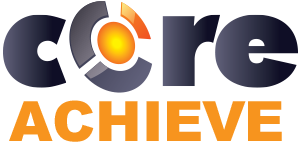The Power an LMS' Mobile Learning
May, 31 2023
Other posts:
Enhancing Team Dynamics for Effective Group Decision-Making with LMS Integration
Organizations increasingly rely on collaborative efforts to solve complex problems, innovate, and adapt to change, but how do we ensure that collaboration is happening.
Maximizing Small Business Potential with Training Technology
Training technologies can push small businesses ahead of their competitors, but what are the factors that go into choosing the right technology?
Unlocking Employee Potential: The Transformative Benefits of an Interactive Learning Management System (LMS)
Interactive training allows for unlocking employee potential, but how is it done?
Building a Robust Sales Pipeline with Training
Every organization wants a streamlined sales pipeline, but building one requires a series of interlocking activities with one of the most important being training.
Strategies for Adapting In-Person Training to Online Platforms
Online training is one of the most flexible ways of delivering training across organizations, but how do you even begin to adapt in-person training into online?
As mobile devices get more affordable, mobile learning is becoming a feasible route for organizations with some benefits...
In today's fast-paced and mobile-driven world, the demand for flexible and accessible learning experiences has skyrocketed. Learners now expect the convenience of accessing training materials anytime, anywhere, and on any device. This shift has made mobile learning a critical component of Learning Management Systems (LMS). In this blog post, we will explore the role of mobile learning in an LMS and how it empowers learners to engage in continuous learning on the go.
Mobile Learning: An Evolving Landscape
The increasing prevalence of smartphones and tablets has transformed the way people consume information and engage with digital content. Mobile learning, also known as mLearning, takes advantage of these devices to deliver educational content in bite-sized, easily digestible formats. By integrating mobile learning capabilities into an LMS, organizations can provide learners with the flexibility to access training materials on their preferred mobile devices, enabling learning beyond the confines of traditional classrooms or offices.
Accessibility and Convenience
One of the primary benefits of mobile learning in an LMS is its accessibility and convenience. Learners can access training materials, modules, and assessments from anywhere, at any time. Whether they are commuting, traveling, or taking short breaks, they can engage in learning activities using their mobile devices. This flexibility ensures that learning is not restricted to specific time frames, empowering individuals to learn at their own pace and fit training into their busy schedules.
Microlearning and Just-in-Time Learning
Mobile learning in an LMS opens up opportunities for microlearning and just-in-time learning. Microlearning involves delivering learning content in short, focused bursts, making it ideal for mobile consumption. Learners can access quick lessons, videos, or quizzes that provide targeted information or address specific challenges. Additionally, mobile devices allow learners to access information or resources in real-time, precisely when they need it. This just-in-time learning approach supports performance improvement, problem-solving, and decision-making in the moment of need.
Multimedia and Interactive Learning Experiences
Mobile devices offer rich multimedia capabilities that can enhance the learning experience. An LMS with mobile learning functionality can deliver engaging and interactive content, such as videos, animations, simulations, and gamified elements. These multimedia elements help capture learners' attention, improve information retention, and create immersive learning experiences. Learners can actively participate in interactive exercises, quizzes, or discussions, fostering deeper engagement and knowledge acquisition.
Tracking Progress and Personalization
Mobile learning in an LMS enables learners to track their progress and performance seamlessly. They can view their completed courses, assessments, and achievements, allowing them to monitor their learning journey. Furthermore, an LMS can leverage mobile technology to provide personalized learning experiences. By analyzing learners' preferences, progress, and performance data, the system can recommend relevant courses, modules, or resources tailored to their individual needs, creating a more personalized and effective learning path.
Mobile learning has revolutionized the way people engage with educational content and continuous learning. Incorporating mobile learning capabilities into an LMS empowers learners with accessibility, convenience, and personalized experiences. By embracing mobile learning in an LMS, organizations can meet the evolving needs of modern learners, increase engagement, and foster a culture of continuous learning. Embrace the power of mobile learning in your LMS and unlock the potential of learning on the go.
Get started with CoreAchieve for free.
Photo by Thom Holmes on Unsplash

Leave comment: